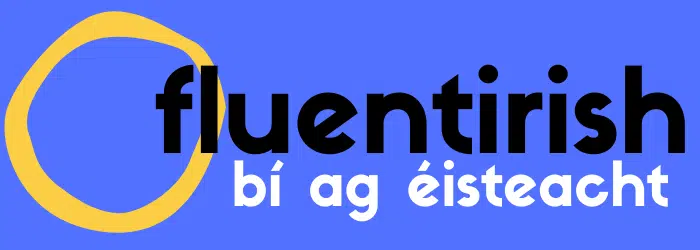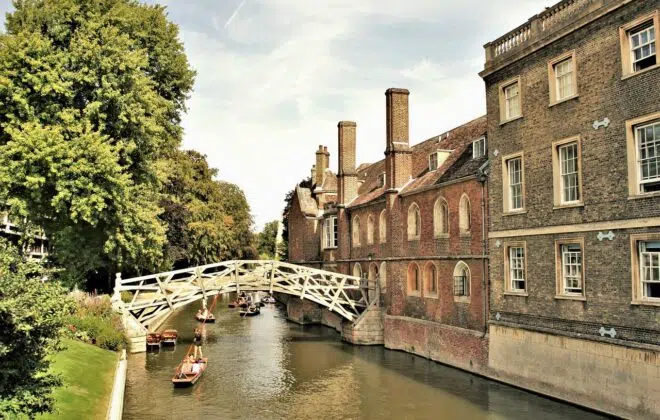Irish Language In European Union 🌍 – The Steady Resurrection
Irish Language In European Union 🌍: In this blog, we share with you some good and interesting news: after a long period of time, the Irish language, as announced by the European Union (or simply abbreviated to the EU), is now recognised as an official language, along with 23 other working languages of the union. Continue reading this blog to learn more.
For the longest time (since 1973 – nearly 49 years ago at the time of writing of this blog), the Irish language was considered only as a treaty language – meaning, only the EU treaties were translated into Irish.
But now, the Irish language’s derogated status finally came to a halt last 31 December 2021. The Irish language’s status, which Ireland fought for for many years, will now be one par with other languages of the European Union.
What does this new status mean? Below, we cover the groundbreaking news. So, read on to learn more.
>>Check out the latest podcasts on FluentIrish.com – and start improving!
Irish language in European Union: what does this all mean?
Irish language enjoyed an achievement last 1 January 2022. This year’s New Year saw the Irish language now have equal footing with the European Union’s other 23 official work languages.
More help
Last 1 January 2007, the Irish language was given official and working status, finally being granted after 2 years in 2005 wherein the Irish Government applied. However, a shortage of translation staff and other types of resources such as technology hindered the process, therefore derogating the status of the Irish language again. Only a few number of documents were translated to Gaelic until now that Ireland is now equipped with more manpower and resources.
For a few years, Ireland has strengthened its efforts and increased staff to meet the requirements. In 2015, Ireland asked the council to gradually discontinue this derogation status by 1 January 2022. This is when Irish would become a full and official working language, on par as the other official European Union languages.
According to the European Union,
Once the Council had given its agreement, the EU undertook thorough preparations, with DG Translation playing a key role in monitoring the EU institutions’ efforts, and drafting the Commission’s reports to the Council. The Commission report of 21 June 2021 confirmed that all the EU institutions had sufficient capacity to meet the demand for translation into Irish as of January 2022.
The EU and the Irish Government have worked closely together, taking innovative measures in the field of recruitment, outsourcing and building up language resources, to make this possible. The cooperation will continue beyond 2021, following the well-established format used by the other language communities, to ensure the long-term success of Irish translation.
To emphasise, the efforts have certainly shown themselves as in 2018, Ireland only had 20 Irish-language translators in the European Commission. But now, there are 60, increasing efforts to produce and better Irish translation. Expect them to increase this year as the Irish language has now achieved a full and working status as part of the European Union languages.
In addition, the number of Irish-language staff in all European Union institutions rose significantly. From 58 around 5 years ago, Ireland now as 170 staff members and will continue to increase – more than 200 – from 2022. a 30-person increase, in other words.
Check out what the Government Chief Whip and Minister of State for the Gaeltacht and Sport, Jack Chambers TD, said:
“The end of the derogation of the status of the Irish language in the European Union is a crucial step in the development and future of the language. Irish is now on a par with other official and working EU languages and this will strengthen the relationship between citizens and European administrative systems. Together with the Official Languages (Amendment) Act 2021 signed by the President of Ireland last week, the role of the Irish language in national and European systems of administration has now been significantly strengthened.”
Continuation
“The European institutions and the staff of my Department deserve a great deal of credit for putting in place the appropriate structures and initiatives to achieve this goal. It was an ambitious project, but thanks to the close cooperation between the EU institutions, the Irish Government and stakeholders under the Advanced Irish Language Skills Initiative among many other initiatives and projects, the European institutions are now ready to translate the full suite of content into Irish along with other official and working languages of the EU.”
Irish language in European Union: start of a ‘renaissance’?
Will this significant event lead the way to the Irish language’s ‘renaissance’ or rebirth?
The Irish Minister of State for Europe Thomas Byrne certainly hopes so. In an interview conducted by the Irish Times, Byrnes said that it was “fitting that it is happening this year, a year when we will also mark the historic 50 year anniversary since Ireland signed the Treaty of Accession to the European Communities”.
Additionally, Minister for the Irish speaking Gaeltacht regions Jack Chambers has stated that this move meant that “Irish is now on a par with other official and working EU languages and this will strengthen the relationship between citizens and European administrative systems”.
Learn Irish through Fluentirish
Now that we have shared with you some groundbreaking news about the Irish language in the European Union (specifically, news about its success), we want to discuss how we can help you in everything Irish-related.
ba mhaith linn plé leat freisin conas is féidir linn cabhrú leat i ngach rud a bhaineann leis an nGaeilge.
If you can understand simple Irish, you will want to improve. Fluentirish is here for you. Listen every day to get on with Irish.
Má tá tú ábalta Gaeilge shimplí a thuiscint – beidh tú ag iarraidh biseach a dhéanamh. Tá Fluentirish anseo faoi do choinne. Bí ag éisteacht gach aon lá chun a bheith ag gabháil ar aghaidh i nGaeilge.
We provide informative blogs and helpful podcasts that can help in your quest to learn the Irish language.
>>Which level?: Find out which level of spoken Irish you understand!




